WHAT TO DO IF YOU FIND
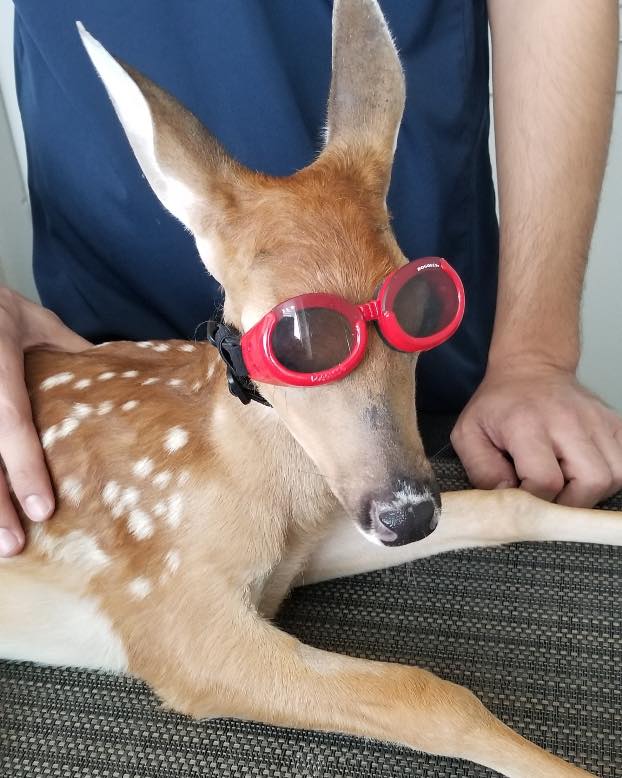
Injured Wildlife
by: Kelly Stilwell
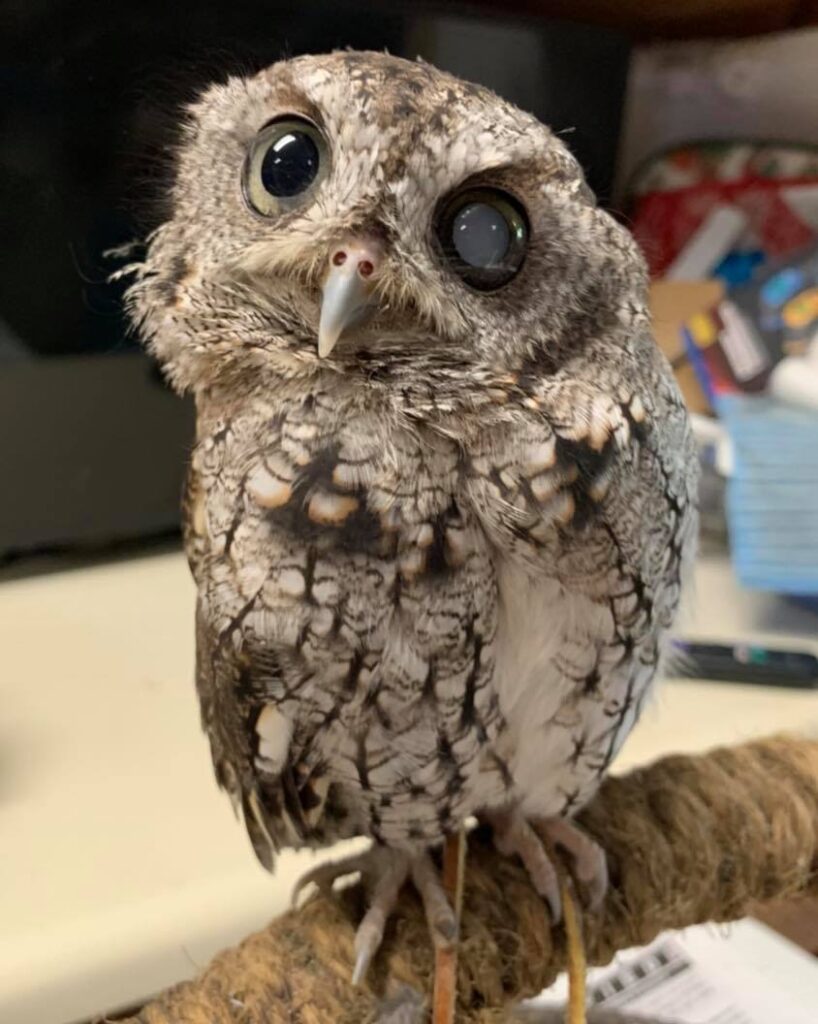
The Sunshine State is known for its abundance of wildlife.
From alligators to manatees to bald eagles, we rank in
seventh place for number of species, coming in at 4,368,
according to the United States Department of Agriculture.
With all those animals vying for space, we’re bound to have accidents and tragedies. But knowing what to do if you happen upon an injured animal could be the difference between life or death. With spring in the air, baby animals are everywhere. Read on for tips of what to do, as well as what not to do, if you find an injured animal.
IF YOU FIND SMALL BIRDS LIKE BLUE JAYS, CARDINALS, DOVES, MOCKINGBIRDS, OR SPARROWS
Remember, small birds don’t eat after dark, so there is no need to feed
it or give it water. Improper feeding can be even more dangerous than
hunger.
Place the bird in a small box, in a warm, dry, dark place. Of course, keep
it away from children and pets. You may think you need to add heat,
but being in your home should be warm enough for the bird if it’s
warm enough for you.
First thing in the morning, call Wildlife, Inc. or your local wildlife rehab
center and they will determine next steps. If you are not able to get
the bird there, they have transport volunteers who can usually pick the
bird up for you and deliver it safely. (See volunteer opportunities below
if this interests you. It’s a huge need!)
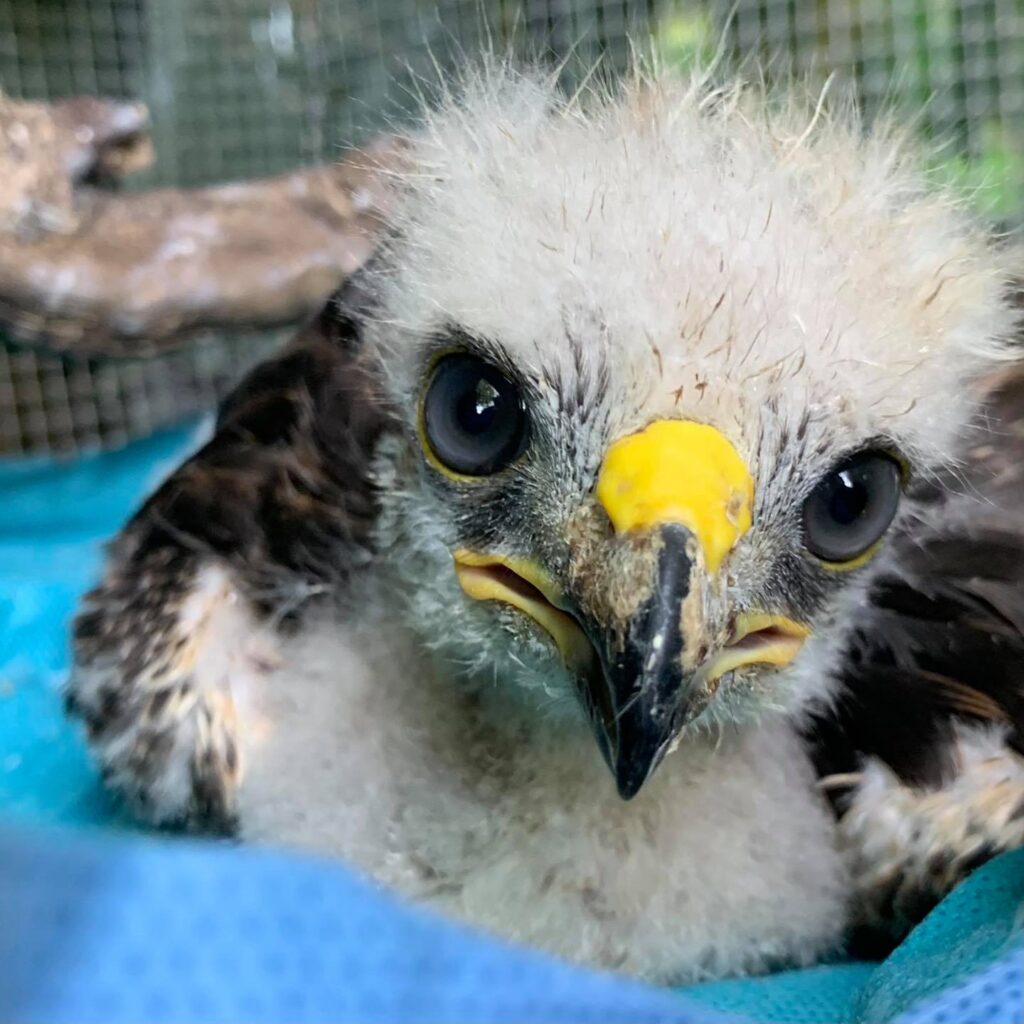
WHAT IF THE BIRD IS LARGER, LIKE AN OWL, HAWK,
GREAT BLUE HERON, OR EGRET?
Larger birds can be extremely dangerous, so if possible, it’s best to have a handler from the local wildlife center come to you and capture it. If you already have the bird captured, follow the same directions as you would with a small bird, contacting the rescue first thing in the morning. If it’s a bird you can’t handle (especially
egrets, owls, great blue herons) check on it first
thing in the morning and call the rescue.
If you find a large, downey-covered chick, stay away and call the rescue. Birds of prey like owls, eagles,
vultures, and falcons often fall from their nests. Parents will attack, so maintain a safe distance.
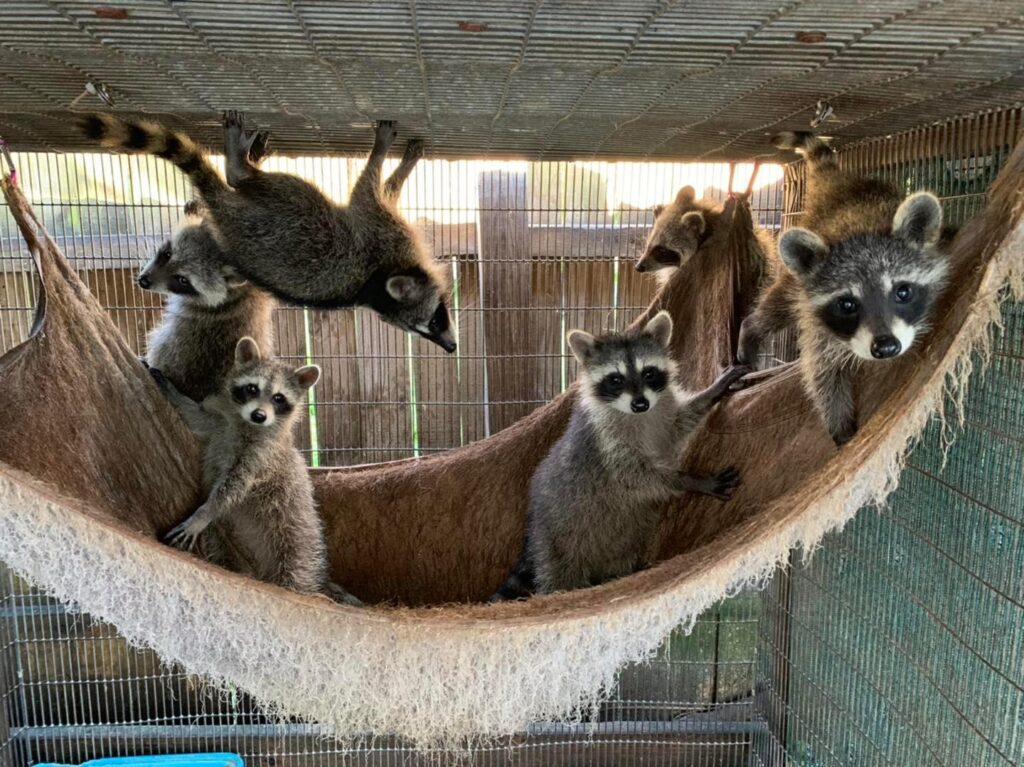
IF YOU FIND A BUNNY, OPOSSUM, OR SQUIRREL:
Place the animal in a box with a dry cloth or towel
under it. Follow the same instructions for a bird,
except that you can place a heating pad on low
under half of the box so they can move to a warm
area if needed. Again, do not give it food or water.
Contact the rescue for further instructions.
IF YOU FIND AN OTTER OR BOBCAT:
Don’t attempt to capture either as they can be
dangerous. Keep an eye on them and call your
local wildlife center.
If it’s a baby, follow instructions above for bunnies
and call the rescue right away
IF YOU FIND A RACCOON, BAT, SKUNK, OR FOX:
These animals can carry rabies, so keep your distance and call the rescue. Do not attempt to capture these adults. Rehab specialists usually have their rabies shots and are able to safely capture these animals. You can also call Fish & Wildlife at 888-404-3922 and report the injured animal.
If it’s a baby, using heavy gloves and a stick or other tool, lightly push the animal into a box tilted sideways. Gently turn the box upright. Follow instructions for bunnies above and call Wildlife, Inc. or your local rescue.
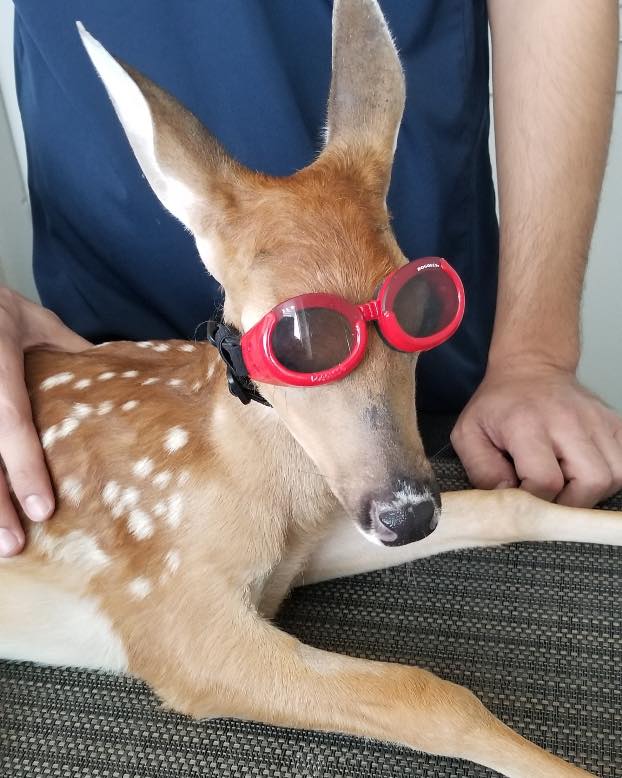
Top Tips FOR ALL WILDLIFE
DO call Wildlife, Inc. at 941-778-6324. Do not
text message, or send messages through their Facebook page. They are available by phone from 8 a.m. until 9
p.m. every day. See their website www.wildlifeinc.org under the “if you find wildlife” tab for more information about what to do if you find waterfowl or deer.
DO consider donating to Wildlife, Inc. They are a nonprofit and do so much good in our community.
You can donate and subscribe to their newsletter on their website www.wildlifeinc.org. Think about participating in their giving challenge on April 26th & 27th.
DO visit the Wildlife Inc. sanctuary located on the property of Mixon Fruit Farms at 2525 27th Street in
East Bradenton and do some local shopping while
you’re there! You can take one of the daily tours
at 11 a.m., 1 p.m., and 3 p.m., or one of the summer
tours at 11 a.m. or 1p.m. Visit www.mixon.com for
more information.
Do NOT take an injured animal to your local vet. They are not permitted to treat it and their only course of action may be euthanasia. We are very lucky to have Wildlife, Inc., and they are experienced in dealing with all wildlife.
Do NOT consider keeping the animal. Yes, those cute cuddly wild baby squirrels seem like they’d be the perfect pet, but it is against the law to keep any wild animal unless you are a licensed rehabilitator. If you’d like to spend some time with lots of baby animals, fill out the form at www.wildlifeinc.org under the How to help tab to volunteer at the rescue. It’s fun and rewarding.
